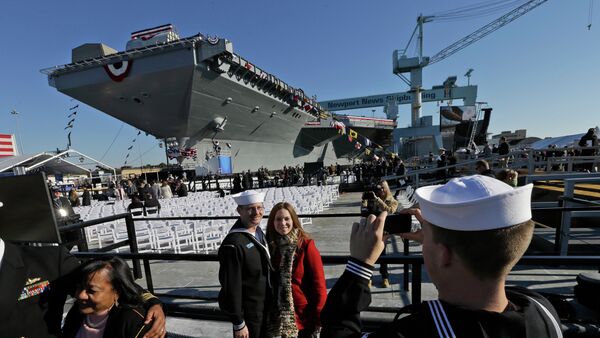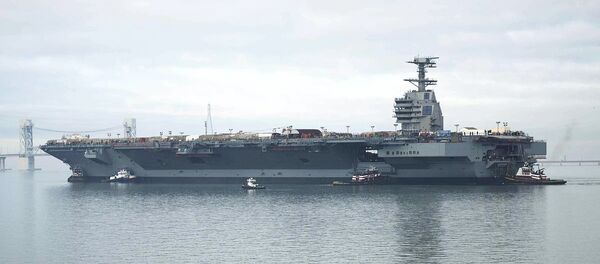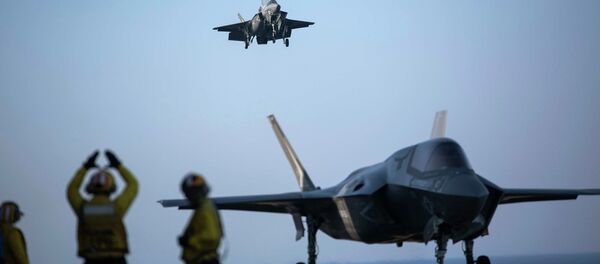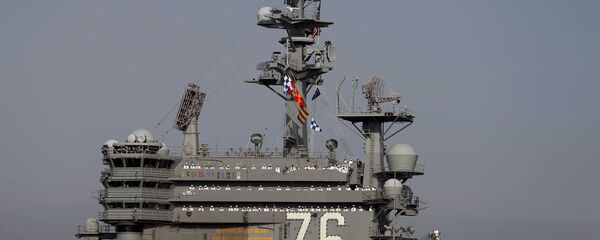According to an internal US Defense Department memo obtained by Bloomberg, the USS Gerald R Ford, the Navy’s newest, most expensive warship, may have trouble with its runway systems, as well as with its defense capabilities and munitions movement.
"These four systems affect major areas of flight operations," Michael Gilmore, DoD director of operational test and evaluation, wrote to Frank Kendall and Sean Stackley, weapons buyers for the Pentagon and the Navy.
"Unless these issues are resolved, which would likely require redesigning, they will significantly limit the CVN-78’s ability to conduct combat operations," he wrote, using the Ford fleet-class name for the new vessel.
Of particular concern is the ship’s arresting gear, used to catch landing aircraft, which is "unlikely to support high-intensity flight operations" and "is well below expectations and well below what is needed to succeed in combat."
Tests show that the arresting gear could only be used 25 times consecutively before failing.
The ship’s launch system is better, but far from ideal. While the system should be able to perform 4,166 takeoffs before critical failures, tests show the USS Gerald Ford’s can only conduct 400 before requiring significant maintenance.
"Based on current reliability estimates, the CVN-78 is unlikely to conduct high-intensity flight operations at the outset of war," Gilmore wrote.
The warship’s radar systems are also a concern. The effectiveness of the dual-band radar, used for both self-defense and air-traffic control, "is unknown," according to Gilmore.
The ship has already seen a number of delays. Christened in 2013, it was originally scheduled to be delivered to the US Navy in September 2014. Last week, the Navy announced that delivery wouldn’t be made until the end of this year.
"During the ongoing testing of developmental systems, first-of-class issues are continue to be resolved," reads a statement given to Bloomberg. "The current estimated delivery date is in November 2016. If additional issues arise during the remaining shipboard testing, that date may need to be revised."





